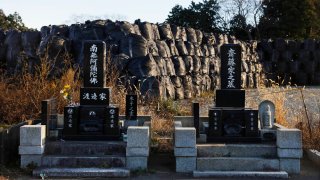
Nine years after "Fukushima" became synonymous with nuclear disaster, the area will help kick off the 2020 Summer Olympics in Tokyo by hosting the opening ceremony's torch relay near its devastated power plant.
But this symbol of rebirth — part of a planned renaissance for a region ravaged by the strongest earthquake in Japan’s history and deadly tsunami that engulfed entire communities — raises questions of whether nearly a decade is enough time to recover and make the area safe.
Officials in Japan told NBC News they were hopeful that the games, which open on July 24 and have been dubbed the country's "Recovery Olympics," would convince skeptics that the answer is yes.
“It's an opportunity for Japan to change people's perception, people's view of Fukushima," said Naoto Hisajima, the director general of disarmament, nonproliferation and science for Japan’s Foreign Ministry. "The Olympic torch will pass through Fukushima, and there're going to be Olympic events in Fukushima."
Read the full story on NBCNews.com.